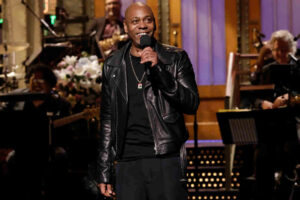Oseh Shalom is our prayer wishing for peace
Elana Arian brings her beautiful composition and voice to this prayer with Julia Cadrain.
Shabbat Shalom
Oseh Shalom is our prayer wishing for peace
Elana Arian brings her beautiful composition and voice to this prayer with Julia Cadrain.
Shabbat Shalom
As we welcome Shabbat, Hanukkah comes immediately after on the 18th. Six13, the outstanding a capella group shares “Elton Johnukah.” Take a listen and enjoy the music and the joy.
Shabbat Shalom
(PS shout out to Jeff and Ilene for sharing this video with me so I can share it here)
Set at the Shoes along the Danube Bank, the Hungarian Sabbathsong Klezmer Band shares “Sh’ma Yisrael.”
Shabbat Shalom
When the heart cries, only God hears it
The pain rips from my soul
A sigh breaks the silence
And you fall on your knees while you pray
R: Hear, O Israel, O Lord Almighty
I thank you for my life, I thank you for everything
The mouth moves silently, but my spirit cries out
My heart cries silently, and I pray for you
Hear, O Israel, O Lord, do not let me fear now
(Behold) the guardian of Israel does not slumber, he does not sleep
The pain is great, but I can’t run away
Because I don’t even have the strength to speak, now I need a miracle.
 Dave Chappelle has us all talking. That is precisely what he intended to do.
Dave Chappelle has us all talking. That is precisely what he intended to do.
Chappelle performed a set for his SNL opening monologue. It was incisive and insightful, sometimes hilarious, sometimes very uncomfortable. He spoke things many people would prefer to remain unspoken, which is his job. As a comedian, he observes the human condition and shares his observations. Couched in comedy, he is acerbic, sardonic, and harsh, pushing against the boundaries if not busting through them.
Chappelle is a professional, a master of his craft. He knew his audience, and he knew which buttons he was pushing.
Chappelle made us think, and he made us talk about what he said. That is important. You may have been offended, and that is okay. There were times when I laughed with amusement, and a couple of times, he made me cringe. But the value of his words was that I had to engage them and think about what was being said.
Thank you, Dave Chappelle, for using the power of your platform to make us think. Yasher Koach!
This Shabbat coincides with Veteran’s Day.
Shalom Aleichem seems a particularly appropriate prayer. The Barcelona Gipsy Klezmer Orchestra combines several influences from their home in Spain and Ashkenaz. May the music lift our hearts to welcome Shabbat.
Wishing everyone Shabbat Shalom
Drop off Beyond this Point!
Our synagogue is built into the side of a large steep hill. We have a beautiful ya’ar, a cleared garden-Forrest area where we can pray surrounded by the beauty of nature. Our Rosh Hashannah morning service was more meaningful in this beautiful space.
We gathered at the edge of the garden to listen to the Shofar; the wood fence kept us from the drop-off into the lush wooded vale below. And the sign said, “Caution, Drop off Beyond this Point.”
To those of a certain age, it is reminiscent of the 1971 song by the Five Man Electric Band, Sign, Sign, Everywhere a Sign. But our sign was not about keeping others out; our sign was about protecting us, keeping us safe from falling and getting hurt. But there is a metaphorical message. What do you take with you when you leave the sacred space and descend back into the regular and mundane?
I imagine such a sign would have been appropriate at the Temple Mount. When you ascended, you performed many rituals and experienced those special moments within the sacred and holy space. Such a sign would serve as notice that descending and leaving the sacred Temple’s ground carried risks. How much of the divine and sacred would you take with you?
I vividly recall walking along the southern ramparts of the Old City walls. To the right was the interior space of Jerusalem and the Temple Mount above; to the left, the bottom of the wall and valley so far below. I walked the narrow path remembering the line from Deuteronomy, “I give you a choice between life and death….” To the right was the sacred Mount, and to the left was a long fall to the bottom. It was harrowing, but I safely found my way to the stairs and ground level. But what did I take with me?
It is easy to be swept up and immersed within sacred, holy spaces and moments. But when we go back out into the world is the actual test of how much that particular special time changed us. Jacob encountered the Angel and God, emerging forever changed, with a new name and a new mission as our Patriarch. Moses was forever changed after the encounter with the burning bush. He left that place forever changed, taking the holiness he encountered with him to lead his people. Can our sacred encounters serve as a place for personal nurture and an opportunity to bring holiness with us back into the world? Caution, Drop off beyond this point is the sign letting us know we can be safe if we carry the sacred from our metaphorical hilltop to the world below.
And the sign said
“Everybody welcome
Come in, kneel down and pray.”
But when they passed around the plate at the end of it all
I didn’t have a penny to pay
So I got me a pen and a paper
And I made up my own little sign
I said, “Thank you, Lord, for thinkin’ ’bout me
I’m alive and doin’ fine”
Shabbat Shalom
Sometimes making it through a year is heroic. The struggles of day-to-day life, frightening world crises, fraught personal relationships, and even making a living presented overwhelming challenges this the past y.ear
For me, Leonard Cohen’s Halleluyah is an anthem speaking to triumph, but like most hard-fought battles, the victorious also depart the field scarred and sometimes bloody. Victory is bittersweet and comes at the cost of leaving us forever changed.
As we reflect on the past year, there were moments of accomplishment and hardship. As we seek the forgiveness of others, as our tradition requires, we must remember to forgive ourselves. We often fell short of the mark and were less than our best selves. Understanding that and seeking to do better are the first steps to returning to a place where the Days of Awe become an opportunity to start afresh. Forgiveness that admits our shortcomings and comforts us while encouraging us to do better gives us the strength and vision to make the new year one of hope and possibilities.
L’Shanah Tova Tikateivu, May you be inscribed in the book of life.
Shabbat Shalom
For this final Shabbat of Elul, I share Leonard Cohen’s Halleluyah, among the most moving and beautiful song poems ever written. This version is in Hebrew.
Parshat Devarim
Matot offers a climax to one of the troubling stories in the formation of our people.
On the verge of entering the Promised Land, the children of Israel must fight the Midianite people first. Although Moses instructs his warriors, according to God’s directive, to slay all the Midianites, Moses is angered when the army spares the women and children and reiterates the command to kill.
Were the Israelite people freed so they would unquestioningly carry out God’s dirty work? Or was this a test to see if we were worthy of freedom and the responsibilities such freedom carries? Were we ready to serve God as a righteous light to the nations? The army commanders understood the implications of this barbaric act and refused to follow the order. Moses overruled them, demanding harsh vengeance.
This kind of retaliation is appalling by our standards, and it was unacceptable for the Israelites, too. The phrase “Just following orders” sends shudders down the spine. But, even where legitimate grievance exists, morality trumps brutal vengeance. Matot is a warning for us and our interaction in an often inhospitable, antisemitic world.
However, the past cannot be the only lens we use to see the future. There was legitimate grievance against the Midianites. They attempted to undermine the nascent Israelite nation, and war appeared to be the way forward. But following orders is insufficient reason to commit atrocities. God’s vengeance is best left for God to transact (the flood, Sodom and the Korach Rebellion, to name three).
When individuals assume that responsibility and act on behalf of God, it is dangerous. A humane approach offers compassion instead of annihilation and a path toward peace. This alternative does not dismiss the history but does not make us slaves to the past, repeating and perpetuating tribalistic hate. Our tradition repeatedly admonishes us to act with benevolence and, in the words of Pirkei Avot, “Even in a place where there are no menschen, strive to be a mensch.”
Against this backdrop, we might look again at the lessons of this part of the parsha and see how we can apply them in many current world affairs and, in particular, to the situation with the Russian war’s effects on Ukrainians and Poles. We cannot be indifferent to human suffering; it goes against everything our tradition demands.
Jewish history in Ukraine and Poland is fraught. Persecution and antisemitism characterize much of the Jewish experience. Periods of welcome, such as King Casimir III inviting Jews to Poland as other countries expelled them, are countered by the infamous Khmelnytskyi and pogroms, which accounted for the slaughter and terror of the Jewish population of the region. It is little wonder that approximately 2 million-plus Jews emigrated to America at the turn of the 20th century when the opportunity to leave that place presented itself.
Furthermore, we understand that deeply rooted antisemitism enabled the Holocaust. These are substantial reasons for the Jewish psyche to be wary. But if we are limited to only that, practicing hatred in response to hate, we deprive ourselves of the very humanity our tradition teaches.
We Jews are duty-bound to see and respond to the Ukrainian people’s human suffering and the Poles’ heroic efforts. We know that the support by the Poles is something no one offered us as the Shoah unfolded. And knowing this, we can nonetheless be instruments in alleviating anguish and perhaps elevating ourselves in the process.
We can serve as Or l’goyim, a light to the nations, deeply rooted in our belief that we can be agents of change; partners in the ongoing act of creation; that we hear of the suffering and do not stand idly by as another’s blood is shed. Our values compel us to be part of the solution to the problem rather than remain mired in a history where we were seen as the problem needing to be solved.
Of course, we do not deny the past or naively presume the days of Jew-hatred are over. But we can take steps to help the world become a better place. This is a lesson I learned from Parsha Matot.
Show your support for the victims of war with your donation. For each donation of $54, we will send you the Ukrainian Sunflower to wear proudly and keep us aware you stand against the suffering. Proceeds are going to the JCC Krakow, a leader in helping Ukrainian refugees.
I am deeply grateful to bear witness to the important stories coming from my mission to the JCC of Krakow in support of Poland and Ukraine and to bear witness.
 Thank you to Rabbi Jeremy Weisblatt of Temple Ohav Shalom in Allison Park outside Pittsburgh and to Rabbi David Ackerman of Beth Am Israel of Penn Valley, PA outside Philadelphia for graciously opening your shuls to me.
Thank you to Rabbi Jeremy Weisblatt of Temple Ohav Shalom in Allison Park outside Pittsburgh and to Rabbi David Ackerman of Beth Am Israel of Penn Valley, PA outside Philadelphia for graciously opening your shuls to me.
Help us help them. Please invite me to share this very Jewish and very human story with your community.